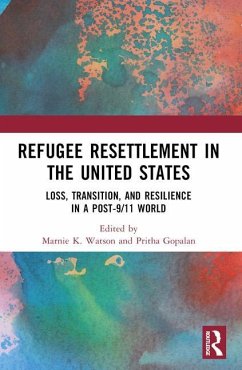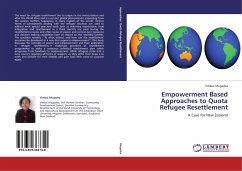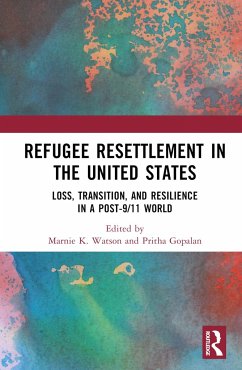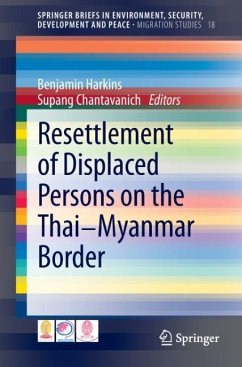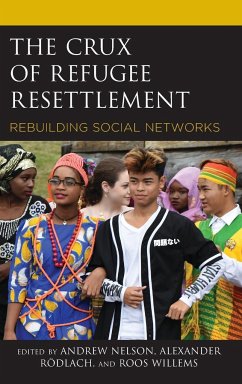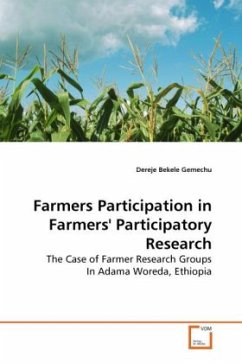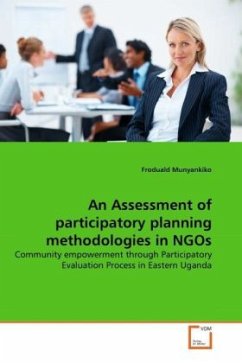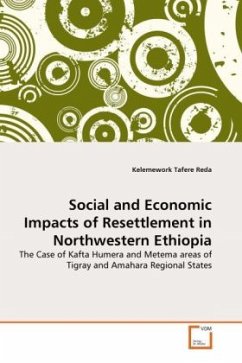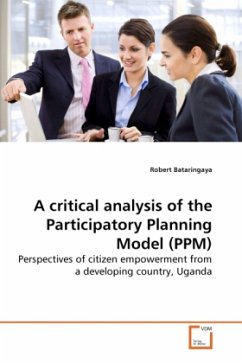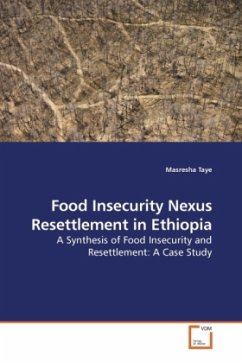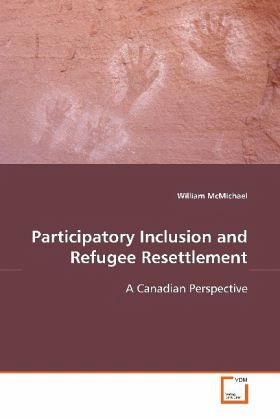
Participatory Inclusion and Refugee Resettlement
A Canadian Perspective
Versandkostenfrei!
Versandfertig in 6-10 Tagen
45,99 €
inkl. MwSt.

PAYBACK Punkte
23 °P sammeln!
A disconnect exists between those who wish to behelpful and those whom they wish to help that manifests itself inthe unanticipated outcomes their efforts produce. This is particularly true in the complicated world of refugeeresettlement. Findings from research conducted by the author in thefirst years after 9/11, when Canada made dramatic policy changesto its Immigration Act, suggest that the potential forunexpected policy outcomes can be reduced when culturally sensitiveconsultations, in the preferred language of the target community, areincorporated in policy development and implementation p...
A disconnect exists between those who wish to be
helpful and
those whom they wish to help that manifests itself in
the
unanticipated outcomes their efforts produce. This is
particularly true in the complicated world of refugee
resettlement.
Findings from research conducted by the author in the
first years
after 9/11, when Canada made dramatic policy changes
to its
Immigration Act, suggest that the potential for
unexpected policy
outcomes can be reduced when culturally sensitive
consultations, in
the preferred language of the target community, are
incorporated in
policy development and implementation processes. In
addition to
helping improve the quality of refugee policies,
inclusive
approaches such as this can also help improve the
quality of life of
resettled refugees. By learning how to include
refugees and other
marginalized groups in discussions of matters that
directly affect
their survival, mainstream communities can begin to
imagine and
build places where strangers become neighbours.
helpful and
those whom they wish to help that manifests itself in
the
unanticipated outcomes their efforts produce. This is
particularly true in the complicated world of refugee
resettlement.
Findings from research conducted by the author in the
first years
after 9/11, when Canada made dramatic policy changes
to its
Immigration Act, suggest that the potential for
unexpected policy
outcomes can be reduced when culturally sensitive
consultations, in
the preferred language of the target community, are
incorporated in
policy development and implementation processes. In
addition to
helping improve the quality of refugee policies,
inclusive
approaches such as this can also help improve the
quality of life of
resettled refugees. By learning how to include
refugees and other
marginalized groups in discussions of matters that
directly affect
their survival, mainstream communities can begin to
imagine and
build places where strangers become neighbours.



